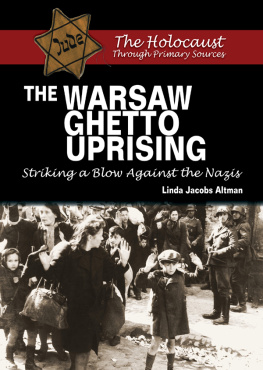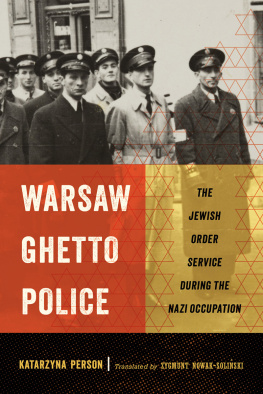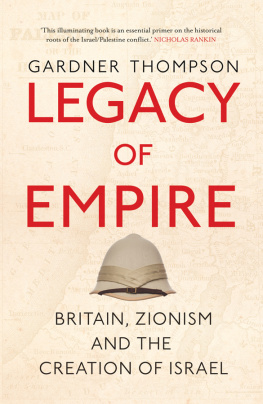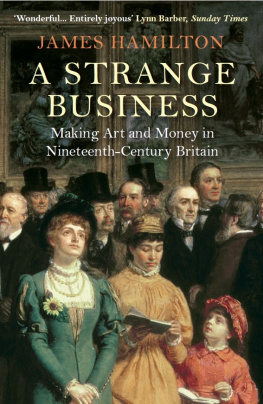Israel Zangwill - Children of the Ghetto
Here you can read online Israel Zangwill - Children of the Ghetto full text of the book (entire story) in english for free. Download pdf and epub, get meaning, cover and reviews about this ebook. year: 2012, publisher: Andrews UK, genre: Detective and thriller. Description of the work, (preface) as well as reviews are available. Best literature library LitArk.com created for fans of good reading and offers a wide selection of genres:
Romance novel
Science fiction
Adventure
Detective
Science
History
Home and family
Prose
Art
Politics
Computer
Non-fiction
Religion
Business
Children
Humor
Choose a favorite category and find really read worthwhile books. Enjoy immersion in the world of imagination, feel the emotions of the characters or learn something new for yourself, make an fascinating discovery.

- Book:Children of the Ghetto
- Author:
- Publisher:Andrews UK
- Genre:
- Year:2012
- Rating:4 / 5
- Favourites:Add to favourites
- Your mark:
- 80
- 1
- 2
- 3
- 4
- 5
Children of the Ghetto: summary, description and annotation
We offer to read an annotation, description, summary or preface (depends on what the author of the book "Children of the Ghetto" wrote himself). If you haven't found the necessary information about the book — write in the comments, we will try to find it.
A fascinating look into the world of the late-19th century Jewish immigrant community in Britain.
Children of the Ghetto — read online for free the complete book (whole text) full work
Below is the text of the book, divided by pages. System saving the place of the last page read, allows you to conveniently read the book "Children of the Ghetto" online for free, without having to search again every time where you left off. Put a bookmark, and you can go to the page where you finished reading at any time.
Font size:
Interval:
Bookmark:
CHILDREN OF THE GHETTO
A Study of a Peculiar People
BY
I. ZANGWILL
This edited version, including layout, typography, additions to text, cover artwork and other unique factors is copyright 2012 Andrews UK Limited
This book is sold subject to the condition that it shall not, by way of trade or otherwise, be lent, resold, hired out or otherwise circulated without the publishers prior written consent in any form of binding or cover other than that in which it is published, and without a similar condition being imposed on the subsequent purchaser.
Preface to the Third Edition.
The issue of a one-volume edition gives me the opportunity of thanking the public and the critics for their kindly reception of this chart of a terra incognita, and of restoring the original sub-title, which is a reply to some criticisms upon its artistic form. The book is intended as a study, through typical figures, of a race whose persistence is the most remarkable fact in the history of the world, the faith and morals of which it has so largely moulded. At the request of numerous readers I have reluctantly added a glossary of 'Yiddish' words and phrases, based on one supplied to the American edition by another hand. I have omitted only those words which occur but once and are then explained in the text; and to each word I have added an indication of the language from which it was drawn. This may please those who share Mr. Andrew Lang's and Miss Rosa Dartle's desire for information. It will be seen that most of these despised words are pure Hebrew; a language which never died off the lips of men, and which is the medium in which books are written all the world over even unto this day.
I.Z.
London, March, 1893.
PROEM.
Not here in our London Ghetto the gates and gaberdines of the olden Ghetto of the Eternal City; yet no lack of signs external by which one may know it, and those who dwell therein. Its narrow streets have no specialty of architecture; its dirt is not picturesque. It is no longer the stage for the high-buskined tragedy of massacre and martyrdom; only for the obscurer, deeper tragedy that evolves from the pressure of its own inward forces, and the long-drawn-out tragi-comedy of sordid and shifty poverty. Natheless, this London Ghetto of ours is a region where, amid uncleanness and squalor, the rose of romance blows yet a little longer in the raw air of English reality; a world which hides beneath its stony and unlovely surface an inner world of dreams, fantastic and poetic as the mirage of the Orient where they were woven, of superstitions grotesque as the cathedral gargoyles of the Dark Ages in which they had birth. And over all lie tenderly some streaks of celestial light shining from the face of the great Lawgiver.
The folk who compose our pictures are children of the Ghetto; their faults are bred of its hovering miasma of persecution, their virtues straitened and intensified by the narrowness of its horizon. And they who have won their way beyond its boundaries must still play their parts in tragedies and comedies - tragedies of spiritual struggle, comedies of material ambition - which are the aftermath of its centuries of dominance, the sequel of that long cruel night in Jewry which coincides with the Christian Era. If they are not the Children, they are at least the Grandchildren of the Ghetto.
The particular Ghetto that is the dark background upon which our pictures will be cast, is of voluntary formation.
People who have been living in a Ghetto for a couple of centuries, are not able to step outside merely because the gates are thrown down, nor to efface the brands on their souls by putting off the yellow badges. The isolation imposed from without will have come to seem the law of their being. But a minority will pass, by units, into the larger, freer, stranger life amid the execrations of an ever-dwindling majority. For better or for worse, or for both, the Ghetto will be gradually abandoned, till at last it becomes only a swarming place for the poor and the ignorant, huddling together for social warmth. Such people are their own Ghetto gates; when they migrate they carry them across the sea to lands where they are not. Into the heart of East London there poured from Russia, from Poland, from Germany, from Holland, streams of Jewish exiles, refugees, settlers, few as well-to-do as the Jew of the proverb, but all rich in their cheerfulness, their industry, and their cleverness. The majority bore with them nothing but their phylacteries and praying shawls, and a good-natured contempt for Christians and Christianity. For the Jew has rarely been embittered by persecution. He knows that he is in Goluth, in exile, and that the days of the Messiah are not yet, and he looks upon the persecutor merely as the stupid instrument of an all-wise Providence. So that these poor Jews were rich in all the virtues, devout yet tolerant, and strong in their reliance on Faith, Hope, and more especially Charity.
In the early days of the nineteenth century, all Israel were brethren. Even the pioneer colony of wealthy Sephardim - descendants of the Spanish crypto-Jews who had reached England via Holland - had modified its boycott of the poor Ashkenazic immigrants, now they were become an overwhelming majority. There was a superior stratum of Anglo-German Jews who had had time to get on, but all the Ashkenazic tribes lived very much like a happy family, the poor not stand-offish towards the rich, but anxious to afford them opportunities for well-doing. The Schnorrer felt no false shame in his begging. He knew it was the rich man's duty to give him unleavened bread at Passover, and coals in the winter, and odd half-crowns at all seasons; and he regarded himself as the Jacob's ladder by which the rich man mounted to Paradise. But, like all genuine philanthropists, he did not look for gratitude. He felt that virtue was its own reward, especially when he sat in Sabbath vesture at the head of his table on Friday nights, and thanked God in an operatic aria for the white cotton table-cloth and the fried sprats. He sought personal interviews with the most majestic magnates, and had humorous repartees for their lumbering censure.
As for the rich, they gave charity unscrupulously - in the same Oriental, unscientific, informal spirit in which the Dayanim, those cadis of the East End, administered justice. The Takif, or man of substance, was as accustomed to the palm of the mendicant outside the Great Synagogue as to the rattling pyx within. They lived in Bury Street, and Prescott Street, and Finsbury - these aristocrats of the Ghetto - in mansions that are now but congeries of "apartments." Few relations had they with Belgravia, but many with Petticoat Lane and the Great Shool, the stately old synagogue which has always been illuminated by candles and still refuses all modern light. The Spanish Jews had a more ancient snoga, but it was within a stone's throw of the "Duke's Place" edifice. Decorum was not a feature of synagogue worship in those days, nor was the Almighty yet conceived as the holder of formal receptions once a week. Worshippers did not pray with bated breath, as if afraid that the deity would overhear them. They were at ease in Zion. They passed the snuff-boxes and remarks about the weather. The opportunities of skipping afforded by a too exuberant liturgy promoted conversation, and even stocks were discussed in the terrible longueurs induced by the meaningless ministerial repetition of prayers already said by the congregation, or by the official recitations of catalogues of purchased benedictions. Sometimes, of course, this announcement of the offertory was interesting, especially when there was sensational competition. The great people bade in guineas for the privilege of rolling up the Scroll of the Law or drawing the Curtain of the Ark, or saying a particular Kaddish if they were mourners, and then thrills of reverence went round the congregation. The social hierarchy was to some extent graduated by synagogal contributions, and whoever could afford only a little offering had it announced as a "gift" - a vague term which might equally be the covering of a reticent munificence.
Next pageFont size:
Interval:
Bookmark:
Similar books «Children of the Ghetto»
Look at similar books to Children of the Ghetto. We have selected literature similar in name and meaning in the hope of providing readers with more options to find new, interesting, not yet read works.
Discussion, reviews of the book Children of the Ghetto and just readers' own opinions. Leave your comments, write what you think about the work, its meaning or the main characters. Specify what exactly you liked and what you didn't like, and why you think so.





